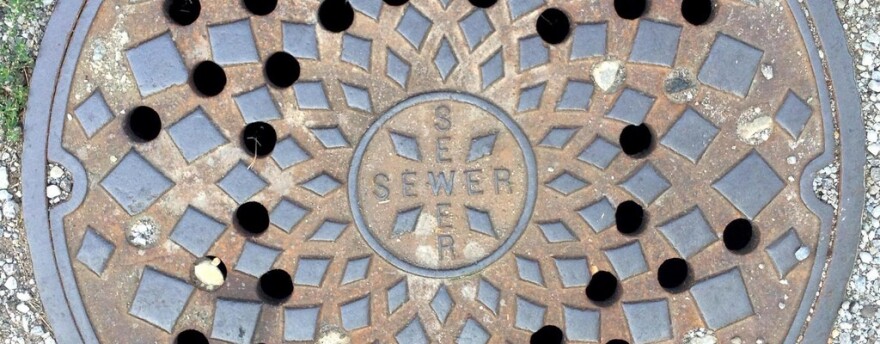Louisville’s Metropolitan Sewer District Board is again recommending a 20 percent rate increase for county residents’ sewer bills.
The money will go toward funding MSD’s 20-year $4.3 billion Critical Repair and Reinvestment Plan. The plan is meant to upgrade the district’s crumbling flood protection and sewer infrastructure — updates which MSD officials say are necessary to protect public health and safety. MSD estimates the increase will raise the average monthly bill by about $10.49.
“This critical repair plan is a 20-year plan that is focused on fixing risk and issues in our flood protection system along the Ohio River,” MSD executive director Tony Parrott said. “Problems to address: inland drainage and storm water, risk associated with aging infrastructure. A lot of our assets, particularly those inside the 264 loop are approaching 150 years old, and also our risk associated with wastewater treatment facilities.”
The MSD Board has the authority to raise rates up to 6.9 percent each year. But any larger increase is subject to Metro Council approval.
Last year, the district proposed an identical rate increase. That proposal met with resistance in the Metro Council, and ultimately was shot down. At the time, Metro Council members vehemently rejected to the rate hike, saying they felt the agency hadn’t done the legwork to make the case to the public.
Parrott said MSD worked to rectify that criticism this year, holding more than 40 meetings with various community groups, industries, and diverse areas of the city. And he said based on that feedback, he thinks residents understand the necessity of investing in the sewer and flood protection systems.
“The feedback that we specifically are asking the community is basically, ‘do you understand the risks? and ‘do you feel like we need to move forward with addressing the risks that have been identified in our critical repair plan?’” he said. “So, overwhelmingly, based on public feedback, 89 percent of the folks are saying we need to move forward with addressing these things, while we continue to address the consent decree work, which has to be done by the end of 2024.”
MSD is under a federal consent decree to reduce sewer overflows into the Ohio River; the agency has spent more than $400 million so far on those projects, with about $500 million more to go. These projects are different from the critical investments included in the current rate increase.
A call to Metro Council members wasn't immediately returned Tuesday morning. Greater Louisville Inc., the city's chamber of commerce, issued a statement that avoided an outright rejection of the proposal.
“GLI believes infrastructure is critical to economic growth and we encourage elected officials to show leadership in determining the amount and duration of rate changes connected to MSD’s infrastructure investment proposals," said GLI C.O.O. Sarah Davasher-Wisdom in a written statement. "We appreciate the need to invest in infrastructure and we recognize the importance of avoiding excessive burdens on citizens and businesses in our region."
As part of the rate resolution, the MSD board is also recommending the creation of a program to help low-income ratepayers pay their bills. Parrott said there could be anywhere from 20,000 to 25,000 households that could qualify for that program and reduce their monthly bills.
Parrott said the 20 percent increase would give the district the bonding capacity to make the initial capital improvements. He said after this initial bump, annual rate increases will stay below 6.9 percent for the next 15 to 20 years.
This story will be updated.





